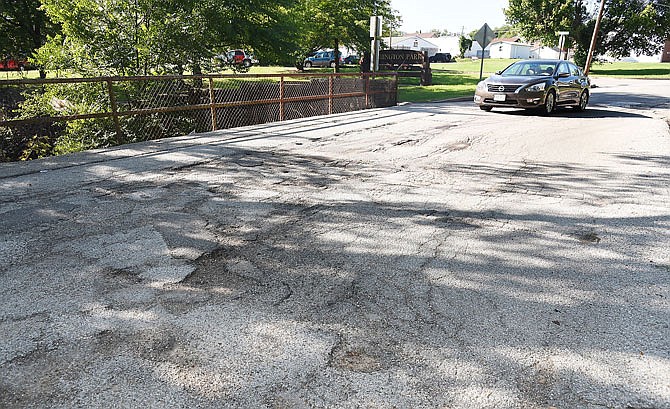After hearing residents' complaints over the last month, the Jefferson City Public Works and Planning Committee took no action Thursday to limit political advertising on city buses.
Ward 4 Councilman Carlos Graham presented the topic to the committee after residents noticed political candidate advertisements on the side of JeffTran buses.
Resident Jennifer Durham told the News Tribune last month she thought the advertisements were inappropriate since JeffTran is public transportation and funded by taxpayer dollars. She added it could be viewed as a city endorsement.
It is common to see political advertisements on JeffTran buses during election seasons, Jefferson City Transit Director Mark Mehmert said. He and Jefferson City Mayor Carrie Tergin told the News Tribune last month that advertisements on JeffTran buses are not endorsements by the city.
The city contracts with Houck Advertising, a third-party advertising vendor, to sell advertisements on JeffTran buses. The contract does not prohibit political signs on city buses.
It is "hit or miss" for whether other cities allow or limit political advertising on public property, City Counselor Ryan Moehlman said.
Federal circuit courts have also upheld that cities can limit or ban political advertisements on public property, Moehlman added.
"Nothing prevents a city transit system from displaying ads of a political nature as long as those ads are being treated like any other ads," Moehlman said, adding it is the City Council's discretion whether to allow political advertisements on public property.
The city earns $13,000-$33,000 in advertising revenue annually, Mehmert said. Election season usually brings in more advertising revenue, he added.
If the committee and council wanted to limit political advertisements, Moehlman said, it may impact the city's and Houck Advertising's revenues. The company could ask for a contract agreement change or decide it's not worth it and cancel the contract altogether, Mehmert added.
"Take into consideration that we very well could lose all advertising on buses," Moehlman said.
The city would also have to craft a definition to state what is considered a political advertisement.
Ward 4 Councilman Ron Fitzwater said he liked the current policy the city has with Houck Advertising.
"How far are we going to take this?" he said. "They live in our community and are taxpayers in our community and are paying for the ads. I think the current policy is well-thought out and serves us well."
Under the city's contract with Houck Advertising, the city does "reserve the right to refuse advertising that is disreputable or would bring the city into disrepute," Moehlman told the News Tribune previously.
While Graham told the News Tribune last month he would be in favor of limiting political advertisements on JeffTran, he said Thursday he was OK with the committee's decision.
"I think we most definitely owe it to our constituents to have this discussion," he said. "Whether it fails or passes, I think we owe it to our citizens."
Ohio Street bridge
Also on Thursday, the Public Works and Planning Committee briefly discussed the Ohio Street bridge, located in Washington Park. Jefferson City closed the Ohio Street bridge, between Louisiana Avenue and South Boulevard, to vehicle traffic earlier this week after a MoDOT inspection found the bridge was continuing to deteriorate.
The bridge had a posted weight limit of 15 tons, but MoDOT downgraded that limit to 5 tons.
"There was very little traffic going over with that 15-ton limit. However, MoDOT downgraded it to 5 ton. A 5-ton load limit would not be unusual for a vehicle (over that weight limit) to go over it and putting up a sign won't stop vehicles from going over this bridge."
Smith recommended residents use Kansas Street and Nebraska Avenue to bypass the area.
The bridge is still open for pedestrian and bicycle use.
The bridge was built in the 1960s, Smith said, and it had a design life of 20-30 years.
He recommended the city replace the bridge as it "is not salvageable in its current condition."
While a past engineering report estimated the cost to replace the bridge would be around $300,000, Smith said he thought the final number would be closer to $500,000 once costs for bidding, design fees and inflation were added into the total amount. The issue is the city does not have that much money readily available.
City staff has talked about replacing the bridge using previous sales tax revenue, but other projects took priority, Public Works Department Director Matt Morasch said.
"It was a surprise that we would be talking about a closure," Smith said. "We thought that would be down the road."
The department plans to speak with the Jefferson City Parks, Recreation and Forestry Department about possibly partnering to address the deteriorating bridge, as well as the Kansas Street bridge.

